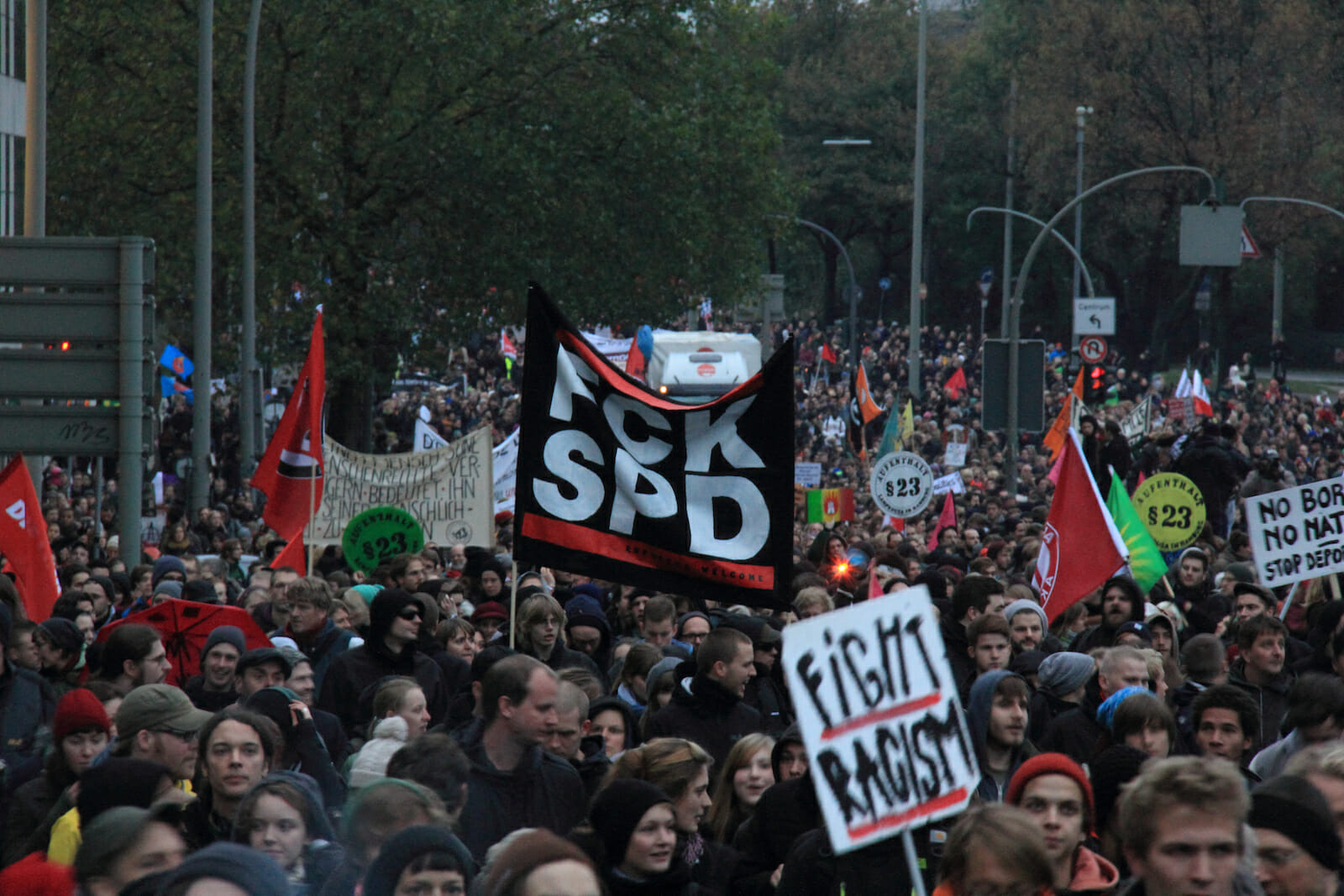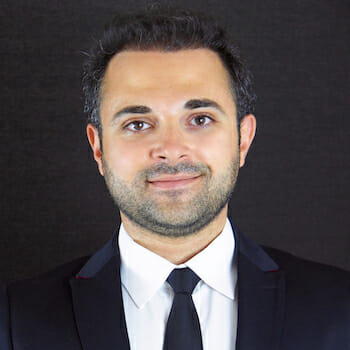
Culture
Can Integration Prevent Radicalization of Muslim Youth?
GERMANY – Radicalization of Muslim youth exists not only in parts of Asia and Africa but also in the heart of Europe. There are an estimated Muslims 4.7 million (5,8%) living in Germany and 70% of the almost 900,000 recent asylum-seekers are believed to be Muslims. Although there is discrimination in Germany, integration and conflict prevention is being addressed in order to prevent the radicalization of Muslim youth.
The deputy head of the integration department at the Hessian Ministry of Social Affairs and Integration, Claudia Hackhausen, says government innovative projects do exist such as the Hessian Labour Market Initiative, which provides measures to integrate refugees into employment and society as a whole. Integration of Muslim youth in Germany is very important for the stability of German society. Susanne Schroeter, a professor at the Geothe University and the director of the Frankfurt Research Centre for Global Islam says: “On the one hand Muslim youth face several problems such as marginalization and discrimination. This is more likely to make youth more sensitive, and hence increase their feeling of being socially disadvantaged.”
On the other hand Muslim youth face resistance when trying to fully integrate in German society. Such resistance namely comes from parents and peers, who warn about losing one’s identity.
There is a detectable impact of ultra conservative Salafist thought on Muslim youth. While conservative Salafism is more likely to espouse an extremist interpretation of Islam in which a narrow-minded worldview exists, it is not necessarily inclined toward violence. Nevertheless, this interpretation of Islam, as Schroeter explains, views the world according to two templates: the house of peace [lit. Dar Al-Salam] and the house of war [lit. Dar Al-Harb].
For instance, “Safer Spaces,” a project directed at youth and financed by the Federal Ministry of Family Affairs, Senior Citizens, Women and Youth, follows this interpretation which divides the world into not two but three templates: the “house of peace,” the “house of war” and the “house of peace treaty,” where a contractual agreement between two “houses” applies. Germany in this case is ascribed to the “house of peace treaty.” On their website, for instance, Muslims are required to understand that “in a non-Muslim country, to vote or not to vote are both equally bad options.”
As a preventive measure, Schroeter argues that change could begin in schools because pupils need to learn about the differences not only between Islam and Christianity but also about the differences between atheism, Judaism and Buddhism etc. In other words, pupils need to learn about different worldviews, cultures and traditions.
In Hesse, Germany alone there are about 75,000 pupils of a Muslim background.
It is important to note that some mosques discuss tolerance, interreligious dialogue and anti-extremism. Examples are the Union of Islamic Cultural Centres in Cologne (VIKZ), the Youth Centre in Biebrich and Gerhart Hauptmann School in Wiesbaden.
The largest mosque umbrella organization in Germany is The Turkish-Islamic Union for Religious Affairs (known as DITIB) which was founded in 1984 in Germany as a branch of Turkish Religious Affairs Directorate. While DITIB remains closely connected with the Turkish religious authority, Diyanet, in terms of finance, staff and organization, it claims to manage about 900 mosques nationwide.
The umbrella organization is still under the spotlight for claims of spreading anti-Semitism, teaching radical Islamism, resisting efforts of integration and maintaining a controversial link to the Turkish state.
Hussein Hamdan, an Islamic scholar at the academy of the Rottenburg-Stuttgart diocese, argues that younger generations are different from older ones. Today, younger generations ask more questions and demand more answers and are more engaged. Breaking out of the patronage of older generations, they attempt to establish youth associations for education, free time, and sport activities. For instance, The Association of Alewite Youth in Germany (BDAJ) represents the interests of more than 33,000 children, adolescents and young adults and is committed to promoting a just society and peaceful coexistence. BDAJ offers inter alia educational seminars, panel discussions for youth, educational field trips, workshops, theatre performances and festivals. Indeed, Alewites increasingly identify themselves as Alewites and not as Muslims.
It is important, Hamdan notes, to pay attention to the positive signs from Muslim youth so that they do not pay for the mistakes of older generations. It is obvious that Mulim youth get caught up in religious fundamentalism, and increasingly become entangled in Jihadist ideologies such as that of ISIS.
Ahmad Mansour, a psychologist and a program director at the European Foundation for Democracy, argues that radicalization is a process, which does not happen overnight. But why do Muslim youngsters slip into radicalization? There are several reasons, Mansour explains. Some a lack of a role model such as a father, failure in school, a family member’s illness or death, or discrimination. Those who feel they are somehow disconnected from society are susceptible to radicalization. They are most vulnerable between the ages of 15 and 17. Salafists fill these gaps for several reasons. They provide youth an identity, a sense of belonging, a simple explanation of a complex world, friendships and community. In other words, while Salafism is dangerous; it is also attractive because it presents a regulated, structured world, for which a clear vision, mission and orientation are promoted.
Instead of playing the role of victim in a complex world, it is more fruitful to participate in an inclusive preventive process, in which all do their share in order to live together in a peaceful society.
“This is possible when the people have the will to do so,” said Taoufik Hartit, a national project manager at the Federation of Muslim Scouts in Germany (BMPPD).
The Muslim scouts organized a project called “The Flame of Hope” which is intended to help Muslim youth gain a better understanding of German history and social responsibility which leads to a peaceful coexistence. A group of Muslim scouts travelled to various cities across Germany from September 2012 to October 2013 to meet with other youth groups of different backgrounds. The goal was to integrate young migrants into society in order to strengthen their sense of citizenship.
While asked to describe the current integration processes of Muslim youth in Germany in one word, Hartit said it remains a “virtuous action.” The same question was directed to Susanne Schroeter, Claudia Hackhausen, Ahmad Mansour and a civil police officer and they answered respectively “ambivalent,” “hopeful,” “needs to be brought up-to-date” and “improvable.”
